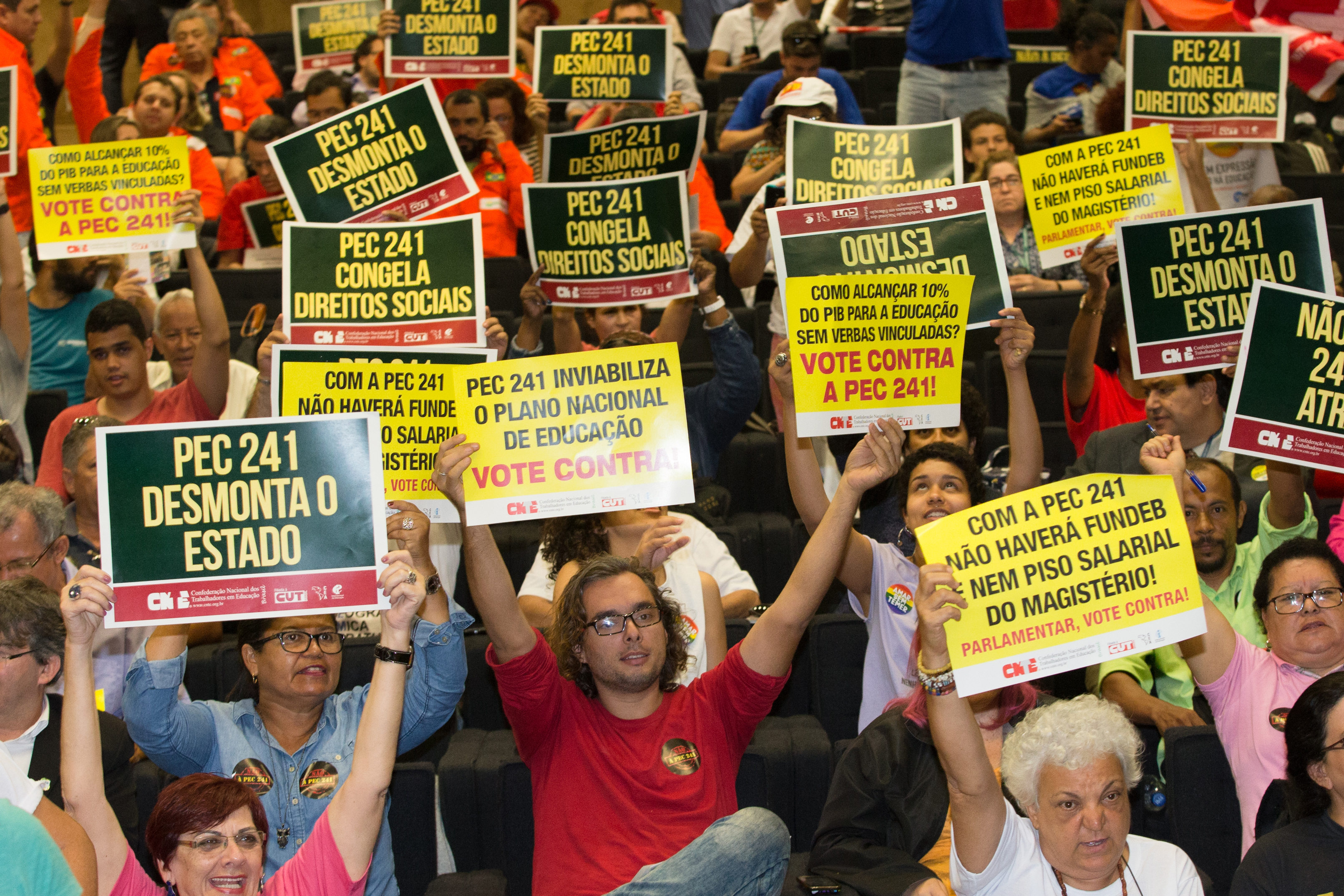Fiscal maladjustment
In disregard for international commitments made by Brazil, Amendment 241 freezes social spending and represents a setback in fundamental rights
 Brasília- DF 05-10-2016 Ato contra a PEC 241 no auditório Nereu Ramos na câmara.
Foto Lula Marques/Agência PT
Brasília- DF 05-10-2016 Ato contra a PEC 241 no auditório Nereu Ramos na câmara.
Foto Lula Marques/Agência PT
The social contract embodied in the Constitution of 1988 came under threat this Monday, October 10, with the approval in the first round by the Lower House of Congress of Amendment 241 – a measure that represents a violation of international commitments assumed by Brazil.
The New Fiscal Regime, as the adjustment program is being called by the government, freezes public spending in Brazil at 2016 budget levels for the next 20 years, permitting only indexation to the previous year’s rate of inflation.
Austerity and fiscal belt-tightening measures like those included in Amendment 241 have been harshly criticized by United Nations bodies for frequently affecting the rights of vulnerable and marginalized groups. According to the UN Committee on Economic, Social and Cultural Rights, any measure taken by a State that sets back the rights enshrined in the International Covenant on Economic, Social and Cultural Rights could constitute a violation of this treaty, to which Brazil is a signatory.
Read more
The Committee has pointed out that fiscal consolidation programs can affect fundamental rights such as the right to a fair wage, social security, adequate healthcare and housing, if they are not implemented with full respect for human rights. It also asserts that States should allocate the maximum available resources to the realization of rights, even in situations of economic crisis.
A report by Unicef, the UN agency that protects the rights of children, shows how governments can adopt a series of other measures to achieve more fiscal maneuverability, such as altering the profile of tax collection or using foreign currency reserves held at the central bank. Nevertheless, Amendment 241 disregards all these alternatives, including the urgent need to reform the Brazilian tax system in order to reduce the proportionally higher burden on people with less capacity to pay.
According to the Office of the UN Rapporteur on Extreme Poverty, the State has the obligation to demonstrate that it has examined all the options that are less harmful to basic rights like education and healthcare. By not considering forecasts for the growth and aging of the population, the increase in the number of students enrolled in the public education system and the rising demand for healthcare, Amendment 241 will create the conditions for a future crisis in the health, education and social security systems – a high cost for future generations.
A fiscal adjustment on the spending side alone has limited results and its redistributive effects are unclear. A measure of this magnitude should have been preceded by a public and transparent assessment of the impacts on human rights, in order to avoid situations of discrimination and a disproportionate burden on the most vulnerable groups in Brazilian society.






